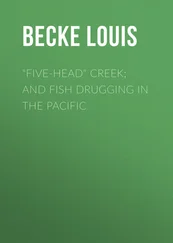Louis Becke - Tessa
Здесь есть возможность читать онлайн «Louis Becke - Tessa» — ознакомительный отрывок электронной книги совершенно бесплатно, а после прочтения отрывка купить полную версию. В некоторых случаях можно слушать аудио, скачать через торрент в формате fb2 и присутствует краткое содержание. Жанр: foreign_prose, literature_19, foreign_antique, на английском языке. Описание произведения, (предисловие) а так же отзывы посетителей доступны на портале библиотеки ЛибКат.
- Название:Tessa
- Автор:
- Жанр:
- Год:неизвестен
- ISBN:нет данных
- Рейтинг книги:3 / 5. Голосов: 1
-
Избранное:Добавить в избранное
- Отзывы:
-
Ваша оценка:
- 60
- 1
- 2
- 3
- 4
- 5
Tessa: краткое содержание, описание и аннотация
Предлагаем к чтению аннотацию, описание, краткое содержание или предисловие (зависит от того, что написал сам автор книги «Tessa»). Если вы не нашли необходимую информацию о книге — напишите в комментариях, мы постараемся отыскать её.
Tessa — читать онлайн ознакомительный отрывок
Ниже представлен текст книги, разбитый по страницам. Система сохранения места последней прочитанной страницы, позволяет с удобством читать онлайн бесплатно книгу «Tessa», без необходимости каждый раз заново искать на чём Вы остановились. Поставьте закладку, и сможете в любой момент перейти на страницу, на которой закончили чтение.
Интервал:
Закладка:
“I have some news for you, Mr. Carr,” said the supercargo genially; “there’s an old friend of yours here, a trader named Remington.”
Carr raised himself with an expression of pleasure lighting up in his worn, thin face. “Old Jack Remington! Where is he? I shall be glad to see him again.”
“He’ll be aboard here in another hour. He has a station at the north end of the island. The moment we mentioned your name he said he would come and see you. His daughter is going on to the Carolines with us, and he has just now gone off to his station to bring her on board, as the captain wants to get away at daylight in the morning.” Then with a pleasant nod he moved his chair some little distance away, and began talking business with the two traders.
Carr, lying on his side with half-closed eyes, apparently was trying to sleep, in reality he was studying the supercargo’s face. It was a handsome, “taking” sort of face, rather full and a bit coarse perhaps, deeply browned by tropic suns, and lit up by a pair of jet black eyes, which, when the possessor was in a good temper and laughed, seemed to dance in unison. Yet they were eyes that in a moment could narrow and show an ugly gleam, that boded ill for the object of their owner’s resentment. His curly hair and beard were jet black also, save here and there where they were streaked with grey, and his figure, stout, but close and well-knit together, showed him to be a man of great strength and activity.
From the face of the supercargo Carr let his glance light upon the figure of Captain Louis Hendry, who was standing at the break of the poop talking to the chief mate. He was a small, slightly-built man of about fifty years of age, with regular features, and wore a flowing grey beard trimmed to a point. His eyes were those of the true Scandinavian, a bright steely blue, though at the present moment the whites were bloodshot and angry-looking. As he talked he kept stroking his beard, and directing sullen glances at the crew, who were still working hard at hoisting in the bags of copra. It was not a pleasant face to look at—a sullen ill-humour seemed to glower forth from under the bushy grey eyebrows, and vie with a nervous, sneaking apprehensiveness, as if he every moment feared to be struck from behind. That he was a bit of a dandy was very evident, for although his navy serge coat and cap were soiled and dirty, they were both heavily trimmed with gold lace—a most unusual adornment for the master of an island trading steamer. Like his supercargo, he carried a revolver at his side, and at this Carr looked with a contemptuous smile, for neither of the two traders, who actually lived on the island, thought it necessary to carry arms, though the natives of Taputeauea, as Drummond’s Island was called, had a bad reputation.
An hour after sunset, and whilst supper was proceeding in the saloon, a smart whaleboat, manned by a crew of half-naked natives of Pleasant Island, came alongside, and an old white-haired man of past sixty stepped on deck. He was accompanied by a fair-skinned, dark-haired girl of about twenty. The boatswain conducted them aft to where Carr, now shaking with a violent attack of ague, was lying.
“My dear boy,” cried the old man, kneeling beside the trader, and looking into his face with intense sympathy. “I am so glad to meet you again, though sorry to see you so ill.”
Carr, with chattering teeth, held out an icy-cold hand.
“How are you, Remington? And you, Tessa? I’ll be all right in another ten minutes, and then we can talk.”
Tessa Remington slipped down on the deck into a sitting posture beside him, and placed her soft, warm hand on his forehead.
“Don’t talk any more just now, Mr. Carr. There, let me tuck you in properly,” and she wrapped the rugs more closely around him. “I know exactly what to do, don’t I, father?”
CHAPTER II
From his boyhood Harvey Carr had been a wanderer among the islands of the Southern Seas. Before he was sixteen his father, who was owner and master of a Hobart Town whaleship, had perished at sea in one of the ship’s boats after the loss of his vessel upon an uncharted reef in the South Pacific. And though another sixteen years had almost passed since that dreadful time of agony and hunger, and thirst and madness, when men looked at each other with a horrid meaning in their wolfish eyes, the boy had never forgotten his dying father’s words, spoken to the lad when the grey shadow of the end had deepened upon the old seaman’s rugged face—
“I’m done for, Harvey. Try to keep up the men’s courage. Rain will fall before morning. I know it is coming, though I shall never feel it. Stick to your two little sisters, boy; you must be their mainstay when I am gone. Lead a clean life, Harvey. You can do it if you think of your dead mother and of me.... And tell the men to stick steady to an east-southeast course. They’ll feel fresh and strong when the rain comes. Drop me over the side the moment I’m gone, lad, won’t you? Don’t let any one of them touch me. Goodbye, my son.”
Those awful days of horror had helped to strengthen Harvey Carr’s natural resolution and steadfastness of purpose in life. When the famished and hideous-looking survivors of the crew of the City of Hope were picked up two days later the orphaned sailor lad made a vow to devote himself to his sisters and “live clean.” And he had kept his vow, though for many years he had lived as trader, mate, or supercargo, among people and in places where loose living was customary with white men, and where any departure from the general practice was looked upon with either contemptuous pity or open scorn. Yet no one, not even the roughest and most dissolute beachcomber in the two Pacifics, would have dared to “chaff” Harvey Carr upon his eccentricity, for he had an unpleasant manner when aroused which meant danger to the man who was so wanting in judgment. Yet some men had “chaffed” him, and found out to their cost that they had picked upon the wrong sort of man; for if he was slow with his tongue he was quick with his hands, and knew how to use them in a manner which had given intense pleasure to numerous gentry who, in South Sea ports, delight to witness a “mill” in default of being able to take part in it themselves.
And so the years had slipped by with Harvey Carr, wandering from one island to another either as trader or seaman. Of such money as he made he sent the greater portion to his sisters in the Colonies, retaining only enough for himself to enable him to live decently. He was not an ascetic, he drank fairly with his rough companions, gambled occasionally in a moderate manner with them, swore when the exigences of seafaring life demanded it, but no one had ever heard his name coupled with that of a woman, white or brown, though he was essentially a favourite with the latter; for at the end of fifteen years’ experience in the South Seas, from Easter Island to the far Bonins, he was one of the few white men who thoroughly understood the character and disposition of the various peoples among whom he had lived. Had he been a man of education his knowledge of native languages, thought and mode of life generally, might have brought him some money, fame, and distinction in the world beyond, but he took no thought of such things; for to him the world beyond was an unknown quantity, only associated in his mind with his sisters, who had sometimes talked to him of their hopes and aspirations. They would, when he had made plenty of money, go to England, to France, to Italy. They would, with him, see the quaint old church on the sands of Devon where their mother, and her mother too, had been christened so long, long ago. And Harvey had only shaken his head and smiled. They, he said, might go, but he had no care for such things; and he would work hard and make money for them until they married and wanted him no longer.
Читать дальшеИнтервал:
Закладка:
Похожие книги на «Tessa»
Представляем Вашему вниманию похожие книги на «Tessa» списком для выбора. Мы отобрали схожую по названию и смыслу литературу в надежде предоставить читателям больше вариантов отыскать новые, интересные, ещё непрочитанные произведения.
Обсуждение, отзывы о книге «Tessa» и просто собственные мнения читателей. Оставьте ваши комментарии, напишите, что Вы думаете о произведении, его смысле или главных героях. Укажите что конкретно понравилось, а что нет, и почему Вы так считаете.












